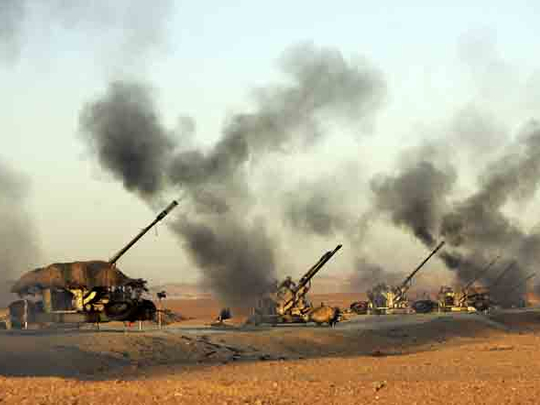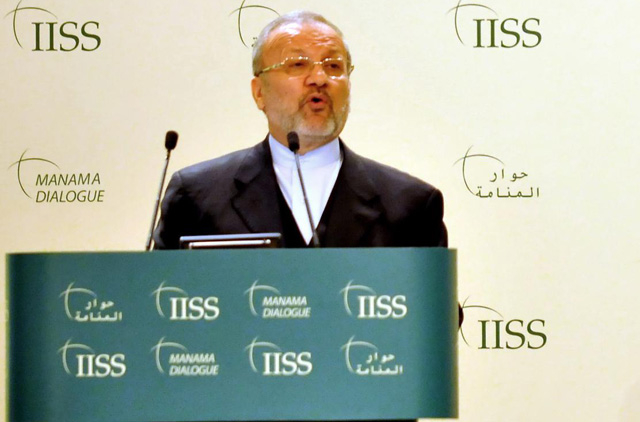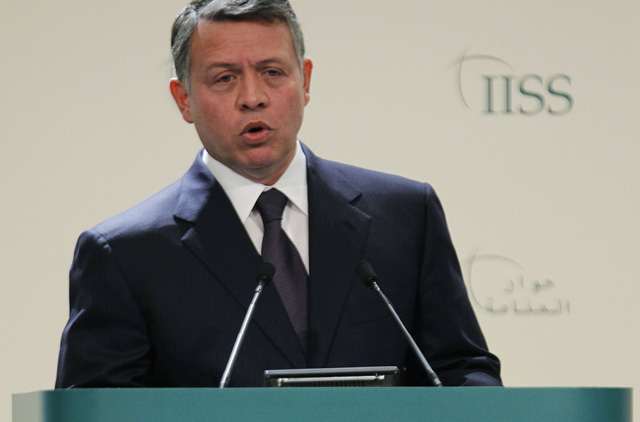
Manama: Iran will never use force against its Muslim neighbours, its foreign minister told a conference on Middle East security on Saturday, after the United States said Arab states were worried by Tehran's suspected attempts to acquire nuclear weapons.
And in a keynote address to the conference, Jordan's King Abdullah II said Israeli-Palestinian peace talks must be rescued from collapse to ensure regional and world stability.
Iran's Manouchehr Mottaki said: "We have never used our force against our neighbours and never will because our neighbours are Muslims."
"Your power in the region is our power and our power is your power."
Secretary of State Hillary Clinton had said in on Friday that US concerns over Tehran's suspected atomic weapons programme are shared by Iran's neighbours.
Mottaki cautioned against submitting to "pressure by outsiders to divide us and create instability," saying "the presence of foreign powers will not help establish security in the region" and urging cooperation among Gulf countries.
He said it was vital for Iran to "have stability and security, because we (Iran and its neighbouring Gulf states) provide the world with most of its energy."
"Iran is determined to guarantee international security in the field of energy."
On Friday, Clinton said "there is no debate in the international community, and perhaps the Iranians will engage seriously... on what is a concern shared by nations on every continent, but most particularly right here in the region."
She was referring to talks due to start between major powers and Iran on Monday over Tehran's nuclear programme.
"Because obviously if you're the neighbour of a country that is pursuing nuclear weapons, that is viewed in a much more threatening way than if you're a concerned country many thousands of miles away. But the concern is the same and we hope that Iran will respond."
The Manama Dialogue comes as US diplomacy reels over State Department cables published by WikiLeaks.
Some of the most prominent headlines highlighted widespread fears among Arab countries in the Gulf about Iran's suspected nuclear weapons programme and their calls to nip it in the bud.
For his part, King Abdullah II said "our region will not enjoy security and stability unless we solve the Palestinian-Israeli conflict, and Arabs, Muslims and Israelis find peace."
"If hope is killed, radical forces will prevail. The region will sink into more vicious warfare and instability, threatening security far beyond the borders of the Middle East," he warned.
"This is why it is essential that we rescue the new round of negotiations between the Palestinians and Israel," he said of direct peace talks launched in September in Washington.
The talks have ground to a halt as Israel refused Palestinian demands to impose a new moratorium on settlement construction in the occupied West Bank.
A 10-month freeze expired on September 26, shortly after the launch of the latest round of negotiations.
King Abdullah II said "the building of settlements has to stop," and he urged Israeli and Palestinian negotiators to resume "serious negotiations" on all pending issues namely borders, security and refugees.
"The alternative is new conflicts that will reverberate far beyond the borders of the Middle East."
The annual Manama Dialogue is organised by the London-based International Institute of Strategic Studies and was formally opened on Friday night by Clinton.
Clinton has said Washington is "working intensively" to break the impasse in Palestinian-Israeli talks.














